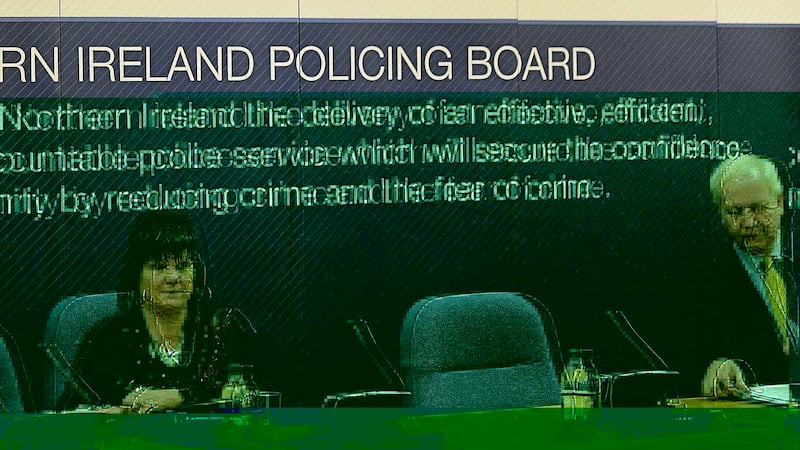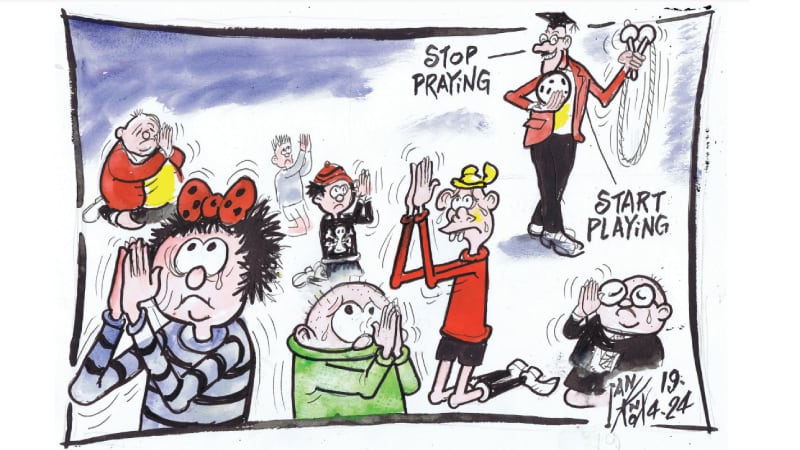AT THE end of last week's police, political and paramilitary get-together in Wales everyone reaffirmed their commitment to the PSNI, the Police Ombudsman and the policing board.
The inclusion of the policing board on this list stood out like a vestigial tail on an X-ray of the peace process. "Ah yes," you might have thought to yourself. "I remember when we evolved that to stop ourselves falling over."
But what on earth is it for now?
The question is worth asking because the policing board cost £7.2 million last year, down a fair whack on the £8m figure for previous years but still a significant sum by any measure and a staggering sum for a quango, the main function of which is to hold eight meetings a year.
The policing board does a bit more than hold those eight semi-public interviews with senior PSNI officers. Its 19 board members also meet in private committees to discuss topics such as finance and human rights. The policing board has a long list of statutory responsibilities ranging from public consultation to hiring and firing the chief constable. Its ultimate function is "to secure an effective and accountable local policing service".
However, prior to the policing board's creation in 2001, almost exactly the same functions were performed by a very similar panel called the Police Authority. Chances are you do not remember the Police Authority because nobody gave two hoots about these oversight arrangements until the question arose of Sinn Fein joining it. That is why the Police Authority became the policing board and the policing board was allowed to spend £8m a year.
It seems incredible to recall the angst we went through while Sinn Fein danced around the chairs it now sits in so comfortably. The principal innovation of the policing board was to replace a Police Authority that had been nominated entirely by the secretary of state with a board comprising nine independents nominated by the secretary of state plus 10 MLAs nominated by their parties according to assembly strength.
The two seats reserved for Sinn Fein from the outset became totemic of the entire 'recognition of policing' debate, which started with SDLP policing board members being attacked by the IRA. The politics of those two empty chairs grew to seem terribly important, as by extension did the policing board itself.
Yet once Sinn Fein recognised policing in 2007 the basis of this importance evaporated and a new logic applied. The devolution of policing and justice was inevitable, under an executive minister overseen by an all-party assembly committee. So what was the point of the policing board? Its direct-rule origins were an evolutionary dead-end.
Now that we are in this situation the logic has become almost circular. The policing board falls under the remit of Alliance policing and justice minister David Ford, who has assumed the secretary of state's former role of appointing the nine independent board members. His last appointee was Alliance party member Brice Dickson. Even if these people are independent, why have them?
The obvious solution is to abolish the policing board and hand its role over to Stormont's 11-member justice committee, which has a rotating chair and a membership reflective of each party's assembly strength. Like the policing board, the justice committee already conducts research, reports, consultations and inquiries. It can summon senior police officers to hearings, hold meeting open to the public and set up sub-committees to examine specific policing issues. With a few more resources there is no reason why it cannot do everything the policing board does more efficiently and with more authority.
Authority is no small matter. The policing board is the lawful body for holding the PSNI to account. It is supposed to set police priorities, policing performance targets and annual and three-year policing strategies yet evidence that it exercises this kind of direction over senior officers is scant. A common criticism of the Police Authority was that the RUC simply ignored it and that problem may be recurring under the pressure of the past year's public order problems.
With its fancy harbour-side offices and half-appointed panel of worthies the policing board looks like the sort of peace process quango serious people stopped taking seriously some time ago. Replacing it with regular grillings at Stormont would go a long way to re-asserting the authority of politics and policing. The money is no small matter either. Closing the policing board would save Mr Ford twice as much as all his civil legal aid reforms combined.


